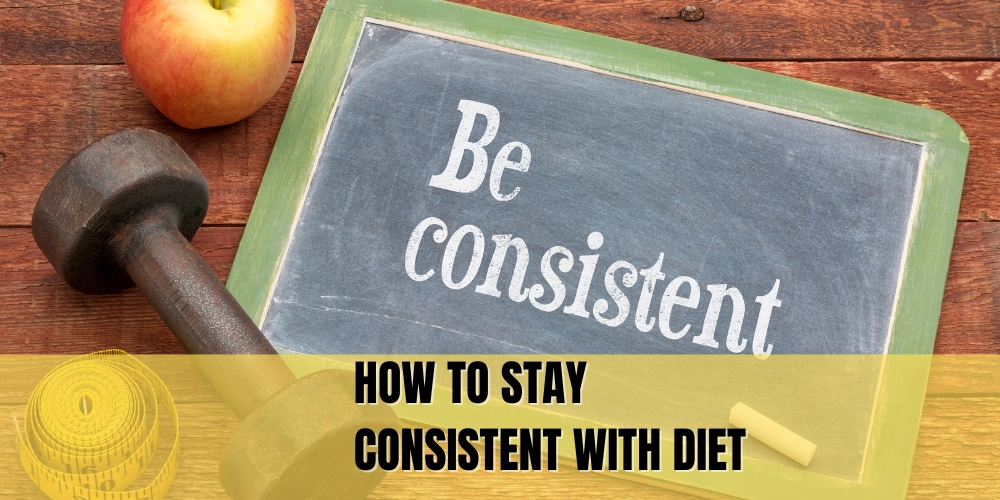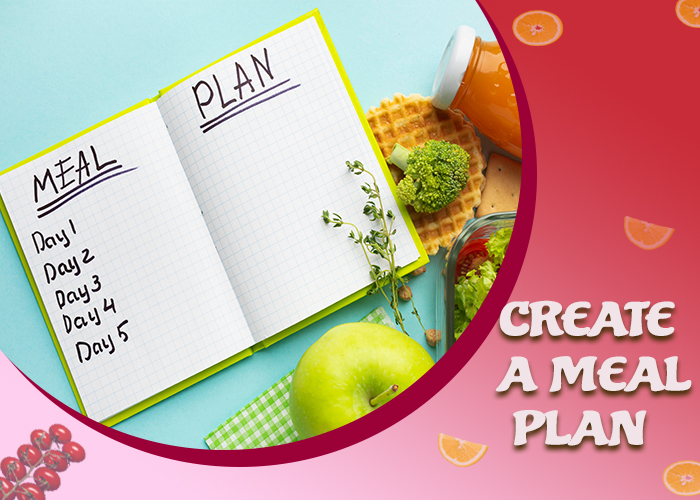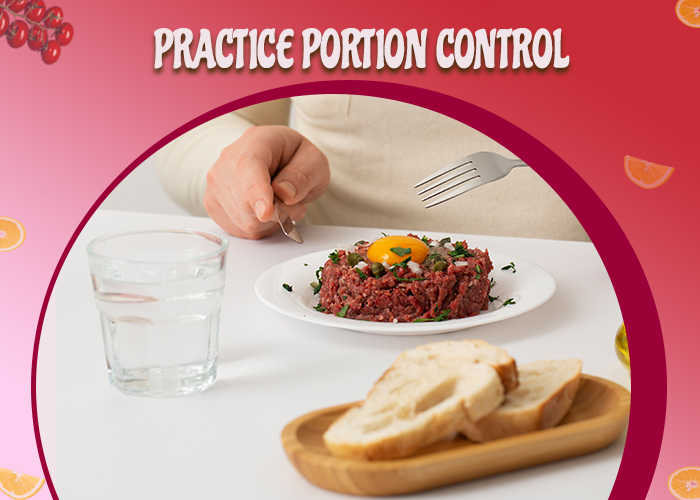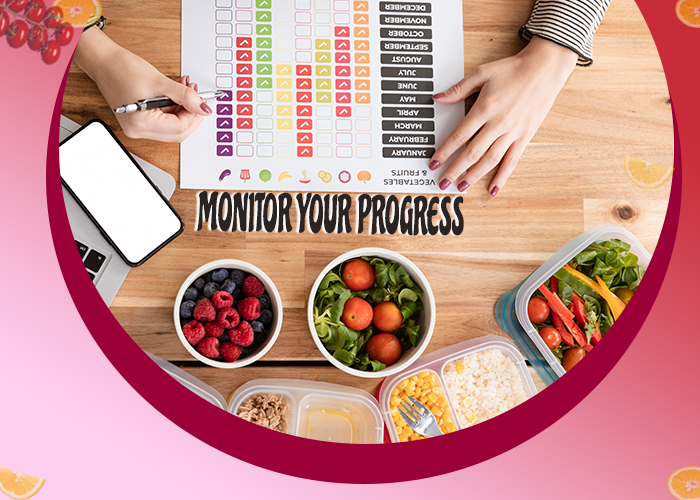againStaying consistent with a diet can be challenging, but it is achievable with the right approach and mindset. Here are some tips to help you stay consistent with your diet:
Set Clear and Realistic Goals
Define your diet goals clearly and ensure they are attainable. Break down long-term goals into smaller, manageable milestones, making it easier to stay on track.
Setting clear and realistic goals is an essential step in staying consistent with your diet. Here’s a more detailed explanation of this principle:
Define Your Diet Goals Clearly:
First start by identifying what you want to achieve with your diet. It could be weight loss, improving overall health, managing a medical condition, or simply adopting a more balanced eating pattern. what’s more, when your goals are specific and well-defined, it becomes easier to work toward them.
Ensure They Are Attainable:
While having ambitious goals is great, they should also be realistic and achievable. So, consider your current lifestyle, preferences, and any dietary restrictions you may have. Now, setting unrealistic goals may lead to frustration and demotivation if you find them difficult to reach.
Break Down Long-Term Goals:
Long-term goals can be overwhelming, especially if they require significant changes to your eating habits. Break them down into smaller, manageable milestones. For example, if your long-term goal is to lose 20 pounds, set monthly or weekly targets for weight loss. This approach makes the journey more achievable and gives you a sense of progress along the way.
Make It Easier to Stay on Track:
By breaking down your goals into smaller milestones, you create a roadmap for your diet journey. Each milestone represents a stepping stone toward your long-term objective. As you achieve these smaller goals, you’ll gain confidence and momentum, making staying committed to the overall plan easier.
Track Your Progress:
Keep a journal or use a diet-tracking app to record your progress. This will help you see how far you’ve come and remind you of the goals you’re striving to achieve. Tracking can also highlight areas where you may need to adjust or improve your approach.
Celebrate Achievements:
Acknowledge and celebrate your successes, no matter how small they may seem. Celebrating milestones reinforces positive behavior and encourages you to keep going.
Reevaluate and Adjust:
Throughout your diet journey, it’s essential to review your goals periodically. As circumstances change or you achieve certain milestones, you may need to adjust your long-term goals or set new ones. Remember, flexibility is crucial in sustaining a healthy diet plan.
setting clear and realistic diet goals and breaking them down into smaller milestones is a powerful strategy for staying consistent. It provides a roadmap for your journey, helps you track progress, and builds momentum towards your overall objectives. With patience, dedication, and a positive mindset, you can make steady progress toward achieving your desired health and wellness outcomes.
Create a Meal Plan
Plan your meals in advance, including snacks. Having a structured meal plan will help you avoid impulsive food choices and make healthier decisions.
Creating a meal plan is a proactive approach to managing your diet and ensuring that you make healthier food choices consistently. Here’s a more detailed explanation of why and how a meal plan can be beneficial:
Maintains Nutritional Balance:
When you create a meal plan, you can ensure that your meals are nutritionally balanced and provide all the essential nutrients your body needs. It allows you to include a variety of food groups, such as vegetables, fruits, whole grains, lean proteins, and healthy fats, in appropriate proportions.
Controls Portion Sizes:
Meal planning helps you control portion sizes, preventing overeating and promoting better portion control. By pre-determining the amount of food you’ll consume in each meal, you can avoid the temptation to indulge in excessive servings.
Supports Weight Management:
Whether your goal is to lose, maintain, or gain weight, a meal plan can be a valuable tool. It enables you to monitor your caloric intake and ensures that you are in line with your weight management goals.
- Saves Time and Money: Having a meal plan in place saves time and reduces the stress of deciding what to cook each day. With a well-thought-out plan, you can streamline grocery shopping, reduce food waste, and save money by buying only what you need for the week.
- Prevents Impulsive Eating: One of the significant benefits of having a meal plan is that it helps you avoid impulsive food choices. When hunger strikes, and you already know what’s on the menu, you’re less likely to reach for unhealthy snacks or fast food.
- Caters to Dietary Restrictions: If you have specific dietary restrictions or allergies, a meal plan allows you to accommodate these needs effectively. You can plan meals that align with your dietary requirements and preferences.
- Encourages Variety: Planning your meals in advance gives you the opportunity to include a diverse range of foods and recipes. This variety makes your diet more enjoyable and satisfying, reducing the chances of getting bored with your meals.
- Promotes Healthy Snacking: Including snacks in your meal plan ensures that you have nutritious options available for between-meal hunger. Healthy snacks can help stabilize blood sugar levels and prevent overeating during main meals.
- Boosts Cooking Confidence: Following a meal plan regularly can improve your cooking skills and confidence in the kitchen. As you try new recipes and experiment with different ingredients, you become more proficient in preparing healthy and delicious meals.
- Fosters Consistency: Consistency is key to achieving long-term dietary goals. With a meal plan, you are more likely to stick to healthier eating habits consistently, leading to better overall health and well-being.
To create a meal plan, start by deciding how many meals and snacks you’ll have each day. Then, choose a variety of nutrient-dense foods to include in your plan. Consider your schedule, cooking preferences, and dietary goals when selecting recipes. Prepare a shopping list based on your meal plan and ensure you have all the necessary ingredients on hand. Regularly review and adjust your meal plan to keep it fresh and exciting while still meeting your health objectives.
Stock Healthy Foods
Keep your kitchen stocked with nutritious foods and snacks that align with your diet. Remove or minimize unhealthy options to reduce temptation.
Stocking your kitchen with healthy foods is a fundamental step in staying consistent with your diet and making better food choices. Here’s a more detailed explanation of why it’s important and how you can effectively stock your kitchen:
Promotes Healthy Eating Habits: When your kitchen is filled with nutritious options, you are more likely to make healthier choices. Having easy access to fruits, vegetables, whole grains, lean proteins, and healthy fats encourages you to incorporate these foods into your meals and snacks.
Reduces Impulse Eating: By keeping unhealthy and processed foods out of sight, you can minimize the temptation to indulge in them. When faced with hunger or cravings, you’ll be more likely to opt for the healthier options available.
Supports Weight Management: A well-stocked kitchen helps you maintain better control over your caloric intake and portion sizes. When you have healthy foods readily available, you can avoid relying on high-calorie, convenient, and less nutritious options.
Encourages Meal Preparation: With a variety of healthy ingredients on hand, you can easily prepare balanced meals at home. This reduces the need to order takeout or rely on packaged meals that may not align with your diet goals.
Saves Time and Money: Stocking up on healthy foods reduces the need for frequent grocery shopping trips and reduces food waste. Buying ingredients in bulk or when they are in season can save money in the long run.
Boosts Nutrient Intake: Nutritious foods provide essential vitamins, minerals, and other nutrients that are vital for overall health and well-being. Having these foods readily available increases your chances of meeting your daily nutrient requirements.
Encourages Snacking on Nutritious Foods: When you have healthy snacks available, you can curb cravings and avoid mindless snacking on empty-calorie treats. Nutritious snacks like fruits, nuts, yogurt, or cut vegetables can satisfy hunger between meals without derailing your diet.
Helps Develop Healthy Habits: Consistently choosing healthy foods and snacks helps reinforce positive dietary habits. Over time, these habits become more ingrained, making it easier to stick to your diet in the long term.
Prevents Last-Minute Unhealthy Choices: When you have a well-stocked kitchen, you are less likely to resort to unhealthy, processed, or fast foods when you are in a rush or feeling unprepared.
To effectively stock your kitchen with healthy foods:
- Make a shopping list of nutritious items before going grocery shopping.
- Prioritize fresh fruits and vegetables, whole grains, lean proteins, and healthy fats.
- Choose minimally processed foods and avoid sugary snacks and beverages.
- Opt for whole-food snacks like nuts, seeds, and dried fruits.
- Store healthy snacks at eye level in the pantry or fridge for easy access.
- Organize your kitchen to ensure healthy foods are visible and accessible.
- Remove or minimize unhealthy options, reducing the chances of reaching for them impulsively.
- Practice mindful shopping and avoid buying unhealthy treats on impulse.
By maintaining a well-stocked kitchen with wholesome foods, you set yourself up for success in maintaining a healthy and consistent diet.
Practice Portion Control
Pay attention to portion sizes and avoid overeating. Use smaller plates and serving utensils to help regulate your portions.
Practicing portion control is a crucial aspect of maintaining a healthy and consistent diet. It involves being mindful of the quantity of food you consume at each meal or snack. Here’s a more detailed explanation of why portion control is important and how you can incorporate it into your daily routine:
Regulates Caloric Intake: Portion control helps you manage your caloric intake, preventing excessive consumption of calories that can lead to weight gain. Even if you are eating healthy foods, consuming large portions can still lead to an imbalance in energy intake.
Supports Weight Management: By controlling portion sizes, you can better manage your weight. Consistently overeating, even with healthy foods, can lead to weight gain over time. On the other hand, practicing portion control can aid in weight loss or maintenance.
Prevents Overindulgence: Larger portions can encourage overeating, even when you’re no longer hungry. By using smaller plates and utensils, you can train yourself to recognize appropriate serving sizes and prevent unnecessary calorie consumption.
Encourages Mindful Eating: Paying attention to portion sizes encourages you to eat more mindfully. Mindful eating involves savoring each bite, being aware of hunger and fullness cues, and enjoying the dining experience.
Balances Nutrient Intake: Portion control allows you to balance your intake of different nutrients. Including a variety of foods in appropriate portions ensures you get a well-rounded diet with all the essential nutrients your body needs.
Reduces Digestive Discomfort: Overeating can lead to digestive discomfort, bloating, and indigestion. Eating smaller portions can alleviate these issues and promote better digestion.
Promotes Sensible Eating Out: When dining at restaurants or other eateries, portion sizes are often larger than what you would serve at home. By practicing portion control, you can make sensible choices when eating out and avoid consuming excessive calories.
Here are some practical tips to implement portion control:
- Use smaller plates: Opt for smaller plates to give the illusion of a fuller plate, even with reduced portion sizes.
- Measure your food: Use measuring cups or a food scale to understand what a standard portion looks like for different foods.
- Be mindful of portion sizes: Pay attention to recommended serving sizes on food labels and try to stick to them.
- Serve in the kitchen: Avoid placing large serving dishes on the table, as it may encourage second helpings. Instead, serve food in the kitchen and leave extra portions out of sight.
- Slow down while eating: Take your time to eat and savor each bite. This gives your body enough time to signal when you are full.
- Include a variety of foods: Fill your plate with a balance of vegetables, lean proteins, whole grains, and healthy fats in appropriate proportions.
- Listen to your body: Pay attention to your hunger and fullness cues. Eat until you feel satisfied, not overly full.
By practicing portion control, you can maintain a balanced and sustainable diet, promote better digestion, and support your overall health and wellness goals.
Stay Hydrated
Drink plenty of water throughout the day. Sometimes, feelings of hunger are actually due to dehydration.
Staying hydrated is a crucial aspect of maintaining a healthy diet and overall well-being. Many people underestimate the importance of drinking enough water throughout the day. Here’s a more detailed explanation of why staying hydrated is essential for your health and how it can help with managing feelings of hunger:
Regulates Body Functions: Water is essential for the proper functioning of our body. It plays a vital role in digestion, absorption of nutrients, circulation, and temperature regulation. When you’re adequately hydrated, your body can function optimally, which can positively impact your overall health.
Supports Weight Management: Drinking water can aid in weight management and weight loss efforts. Sometimes, our bodies confuse thirst with hunger, leading us to eat when we’re actually just thirsty. By staying hydrated, you can prevent unnecessary snacking and reduce the chances of overeating.
Curbs False Hunger Signals: Dehydration can sometimes trigger false hunger signals, leading you to think you’re hungry when you’re actually not. When you feel the urge to eat between meals, try drinking a glass of water first. You may find that the feeling of hunger subsides.
Enhances Exercise Performance: Proper hydration is vital for athletic performance. When you exercise, your body loses water through sweat, and being dehydrated can lead to reduced endurance and performance. Drinking enough water before, during, and after exercise helps maintain your energy levels and aids in recovery.
Boosts Metabolism: Some studies suggest that staying hydrated may help boost your metabolism. While the effect is relatively modest, every little bit counts when it comes to maintaining a healthy weight and promoting overall health.
Improves Digestion: Water is essential for breaking down food and aiding in digestion. It helps soften and move food through the digestive system, preventing constipation and promoting regular bowel movements.
Promotes Clear Skin: Proper hydration is essential for maintaining healthy skin. Drinking enough water can help flush out toxins and impurities, leading to a clearer and more radiant complexion.
Regulates Body Temperature: Water helps regulate body temperature by sweating and cooling the body during physical activity or hot weather. It prevents dehydration, heat exhaustion, and heatstroke.
Here are some tips to stay hydrated throughout the day:
- Carry a water bottle: Keep a reusable water bottle with you at all times, so you can easily sip water throughout the day.
- Set reminders: Use your phone or other devices to set reminders to drink water at regular intervals.
- Drink before meals: Have a glass of water before each meal to help control your appetite and aid in digestion.
- Flavor your water: If you find plain water boring, add a slice of lemon, lime, cucumber, or mint to enhance the taste without adding calories.
- Monitor urine color: Check the color of your urine as an indicator of your hydration level. Pale yellow or straw-colored urine is a sign of proper hydration, while dark yellow or amber-colored urine may indicate dehydration.
- Drink when you’re thirsty: Listen to your body’s thirst cues and drink water whenever you feel thirsty.
By staying properly hydrated, you can support your body’s functions, maintain a healthy weight, and reduce the likelihood of mistaking thirst for hunger. Aim to drink water consistently throughout the day to ensure you remain adequately hydrated and promote overall health and well-being.
Monitor Your Progress
Keep track of your meals, snacks, and progress in a journal or app. Seeing your improvements and achievements can be motivating.
Monitoring your progress is a crucial aspect of staying consistent with your diet and achieving your health and wellness goals. Keeping track of your meals, snacks, and progress in a journal or app can provide valuable insights and act as a source of motivation. Here’s a more detailed explanation of why monitoring your progress is beneficial and how you can do it effectively:
Accountability and Awareness: When you record your daily food intake and activities, you become more conscious of your choices. This heightened awareness makes you more accountable for your actions and encourages you to make healthier decisions. It also helps you identify potential areas for improvement.
Identifying Patterns: By tracking your meals and snacks, you can identify patterns in your eating habits. This can include noticing specific times of the day when you’re more likely to indulge in unhealthy foods or recognizing triggers that lead to overeating. Understanding these patterns empowers you to make positive changes to your diet.
Motivation and Encouragement: Recording your progress allows you to see how far you’ve come and celebrate your achievements. Whether it’s reaching a weight loss milestone, consistently choosing nutritious foods, or improving your fitness levels, acknowledging your successes can boost your motivation to continue on your journey.
Adjusting and Fine-Tuning: A progress journal or app enables you to track not only what you eat but also how you feel. You can note your energy levels, mood, and any physical or emotional changes you experience. This information can be valuable in fine-tuning your diet and exercise routine to suit your individual needs and preferences.
Goal Setting and Planning: Your progress journal provides a record of your achievements and setbacks, which can help you set realistic and achievable goals. Based on your past experiences, you can plan better and make informed decisions about your future diet and lifestyle choices.
Building Healthy Habits: Consistently recording your meals and progress reinforces healthy habits. Over time, it becomes a routine part of your day, making it easier to stay on track with your diet and overall health goals.
Personalizing Your Approach: Everyone’s body is unique, and what works for one person may not work for another. Monitoring your progress helps you understand how your body responds to different foods and activities, allowing you to customize your diet plan accordingly.
Tips for Effective Progress Monitoring:
- Choose a method that suits you: Whether it’s using a journal, a mobile app, or an online tool, select a method that fits your lifestyle and preferences.
- Be consistent: Make a habit of recording your meals, snacks, and activities regularly. Consistency is key to gaining meaningful insights from your progress tracking.
- Include details: Note not only the foods you eat but also portion sizes, cooking methods, and any emotional factors that may influence your eating habits.
- Set realistic goals: Break down your long-term goals into smaller, achievable milestones. This way, you can celebrate small victories and stay motivated.
- Be kind to yourself: Understand that progress is not always linear, and there may be ups and downs along the way. Be compassionate with yourself and use setbacks as opportunities to learn and grow.
Remember, the purpose of monitoring your progress is not to be overly critical but to gain valuable information that can help you make positive changes to your lifestyle. It’s a tool to empower you on your journey to better health and well-being.
Find Accountability
Share your diet goals with a friend, family member, or join a support group. Having someone to hold you accountable can boost your commitment.
Finding accountability is a powerful strategy to stay consistent with your diet and ensure you stay on track with your health and wellness goals. When you share your diet goals with a friend, family member, or join a support group, you have someone who can hold you accountable, which can significantly boost your commitment to your diet plan. Here’s a more detailed explanation of how accountability works and its benefits:
- External Support and Encouragement: Sharing your diet goals with someone else provides you with external support and encouragement. This support system can motivate you during challenging times, reminding you of your commitment to your health and keeping you focused on your goals.
- Shared Goals and Similar Interests: When you find accountability in a friend, family member, or support group, you are likely to connect with people who have similar health and wellness goals. This shared sense of purpose creates a positive environment where everyone encourages and supports each other’s progress.
- Social Connection: Accountability fosters a sense of social connection and community. Having someone to talk to about your diet journey and experiences can alleviate feelings of isolation, making the process more enjoyable and less overwhelming.
- Celebrating Success Together: As you achieve milestones and make progress in your diet plan, having an accountability partner or support group allows you to celebrate your successes together. This celebration reinforces your commitment to the journey and adds a sense of accomplishment to your efforts.
- Feeling Responsible: When you share your diet goals with someone else, you feel a sense of responsibility to stay true to your commitments. Knowing that someone else is aware of your goals can prevent you from making impulsive or unhealthy choices.
- Feedback and Advice: An accountability partner or support group can offer valuable feedback and advice based on their own experiences or knowledge. They can help you navigate challenges, provide suggestions for healthy alternatives, and offer tips to overcome obstacles.
- Staying Consistent: Regularly connecting with your accountability partner or group keeps you accountable and ensures you maintain consistency with your diet plan. It helps you stay focused on your goals and minimizes the risk of veering off track.
- Problem-Solving: When you encounter difficulties or face hurdles in your diet journey, discussing these challenges with your accountability partner or group can lead to effective problem-solving. They can offer different perspectives and ideas to help you overcome obstacles.
Tips for Finding Accountability:
- Choose someone you trust: Look for an accountability partner or support group with whom you feel comfortable sharing your goals and challenges.
- Regular check-ins: Schedule regular check-ins with your accountability partner or group to update each other on your progress and offer support.
- Share your successes and setbacks: Don’t be afraid to share both your successes and setbacks with your accountability partner or group. It’s an opportunity to celebrate achievements and learn from challenges.
- Stay open to feedback: Be open to receiving feedback and suggestions from your accountability partner or group. Embrace the opportunity to grow and improve your approach to your diet plan.
- Be a supportive partner: Offer support and encouragement to your accountability partner or group as well. It’s a two-way relationship that benefits everyone involved.
Remember, accountability is not about judgment or criticism but about creating a supportive environment that fosters personal growth and success on your diet journey. Having someone to share your progress, challenges, and triumphs with can make a significant difference in staying consistent and achieving your overall health goals.
Reward Yourself (Non-Food Rewards)
Celebrate your achievements with non-food rewards, such as treating yourself to a movie, spa day, or new workout gear.
Rewarding yourself with non-food rewards is an essential aspect of staying consistent with your diet and maintaining motivation on your health journey. Celebrating your achievements, both big and small, helps reinforce positive behavior and creates a sense of accomplishment. Non-food rewards are beneficial because they do not undermine your diet goals, and they contribute to your overall well-being. Here’s a more detailed explanation of the significance of non-food rewards and some examples:
- Reinforcing Positive Behavior: When you achieve a milestone or stick to your diet plan, rewarding yourself with a non-food treat reinforces the positive behavior you want to cultivate. Positive reinforcement helps to solidify the habits you are trying to build, making it more likely that you will continue making healthy choices.
- Motivating Progress: Setting achievable goals and rewarding yourself as you accomplish them creates a sense of progress and achievement. Knowing that a reward awaits when you reach your goals can provide an extra push to stay consistent and dedicated to your diet plan.
- Emphasizing Non-Food Enjoyment: By choosing non-food rewards, you shift the focus away from using food as a source of pleasure or comfort. Instead, you learn to appreciate and enjoy other activities or items that contribute positively to your well-being.
- Avoiding Emotional Eating Traps: Using food as a reward can lead to emotional eating patterns, where food becomes associated with emotions rather than nourishment. Non-food rewards help break this cycle and allow you to find healthier ways to cope with emotions and stress.
- Enhancing Self-Care: Non-food rewards often involve self-care activities that promote relaxation, well-being, and self-appreciation. Engaging in self-care activities can reduce stress and improve your mental and emotional state, supporting your overall health journey.
Examples of Non-Food Rewards:
- A Relaxing Spa Day: Treat yourself to a day at the spa, enjoying a massage, facial, or other pampering treatments to unwind and de-stress.
- Fitness Gear: Invest in new workout clothes, shoes, or fitness equipment as a reward for sticking to your exercise routine and making progress.
- A Day Out: Plan a day trip to a place you enjoy, such as a museum, park, or beach, where you can relax and have fun.
- Time for a Hobby: Spend time on a hobby or activity you love, whether it’s painting, gardening, reading, or dancing.
- Movie or Theater Tickets: Treat yourself to a movie, theater show, or concert you’ve been looking forward to.
- Journal or Planner: Get yourself a beautiful journal or planner to track your progress, set goals, and stay organized.
- Relaxation Time: Set aside time for relaxation, meditation, or yoga to rejuvenate your mind and body.
- Time with Loved Ones: Plan a get-together with friends or family to celebrate your achievements and enjoy quality time together.
- A New Book: Purchase a book you’ve been wanting to read or listen to an audiobook during your leisure time.
- Cooking Class: Take a cooking class to learn new healthy recipes and cooking techniques.
Remember that non-food rewards are meant to be positive reinforcements and not substitutes for emotional needs. They should complement your overall health journey and support your long-term goals. Celebrating your achievements with non-food rewards enhances your sense of self-worth, making your diet plan more enjoyable and sustainable in the long run.
Practice Mindful Eating
Be mindful of what you eat, savor each bite, and pay attention to hunger and fullness cues. Avoid distractions while eating, like watching TV or working on the computer.
Practicing mindful eating is a powerful tool for staying consistent with your diet and promoting overall health and well-being. Mindful eating involves being fully present and aware of the food you consume, how you eat it, and how it affects your body and mind. Here’s a more detailed explanation of the principles and benefits of mindful eating:
- Be Present and Aware: When you eat mindfully, you focus your attention on the act of eating. Avoid eating while engaging in other activities like watching TV, scrolling through your phone, or working. By being present and aware, you can truly experience the flavors, textures, and satisfaction of each bite.
- Savor Each Bite: Take the time to savor and enjoy your food. Chew slowly and appreciate the taste and aroma. When you savor each bite, you are more likely to feel satisfied with smaller portions and avoid overeating.
- Recognize Hunger and Fullness Cues: Mindful eating involves listening to your body’s hunger and fullness cues. Before eating, check in with yourself to assess whether you are truly hungry or eating out of boredom, stress, or habit. Stop eating when you feel comfortably full, even if there is food left on your plate.
- Enjoy the Process: Eating mindfully shifts the focus from viewing food as merely fuel to an enjoyable and sensory experience.
- Enhance Digestion: Mindful eating aids digestion by allowing your body to recognize and process food more effectively. When you eat slowly and chew thoroughly, you give your digestive system the time it needs to function optimally.
- Recognize Emotional Eating Triggers: Mindful eating helps you become aware of emotional triggers that may lead to unhealthy eating patterns. Instead of turning to food for comfort or distraction, you can develop healthier coping mechanisms for managing emotions.
- Improve Food Choices: By being mindful of what you eat, you become more conscious of your food choices. You may naturally opt for nutritious, whole foods that nourish your body and provide sustained energy.
- Prevent Overeating: Eating mindfully can prevent overeating by giving your brain enough time to signal when you are full. This helps you avoid consuming excess calories that could lead to weight gain or digestive discomfort.
- Cultivate Gratitude: Mindful eating encourages gratitude for the food you have and the effort that went into its preparation. It fosters a deeper appreciation for the nourishment that sustains your body.
- Reduce Stress: Mindful eating can help reduce stress and anxiety related to food and eating habits. When you approach meals with mindfulness, you create a calm and relaxed atmosphere around food.
To practice mindful eating, start by taking a few deep breaths before each meal to center yourself. Avoid distractions and savor the flavors and textures of your food. Chew slowly and pay attention to how your body responds to each bite. Gradually, mindful eating can become a natural part of your daily routine, leading to improved overall health and a more positive relationship with food.
Be Flexible
Allow yourself occasional treats or “cheat” meals. Completely depriving yourself may lead to cravings and overindulgence later on.
It involves allowing yourself occasional treats or “cheat” meals without feeling guilty or restrictive.
So, Here’s a more detailed explanation of why being flexible is beneficial and how to incorporate it into your diet:
Avoiding Feelings of Deprivation: Completely restricting yourself from certain foods or treats can lead to feelings of deprivation, which may result in intense cravings and a higher likelihood of overindulgence later on. Then, Allowing yourself to enjoy occasional treats can help satisfy cravings and prevent feelings of deprivation.
Promoting a Positive Relationship with Food: Being flexible with your diet fosters a healthier and more positive relationship with food. It allows you to enjoy a wide variety of foods and flavors without labeling some as “good” or “bad.” This positive mindset can reduce feelings of guilt and shame associated with eating certain foods.
Preventing Binge Eating: When you allow yourself occasional treats, you are less likely to engage in binge eating episodes. The freedom to enjoy your favorite foods in moderation helps maintain a sense of balance in your diet.
Maintaining Social Connections: Flexibility with your diet can also facilitate social connections and make social gatherings more enjoyable. It allows you to participate in events and celebrations without feeling isolated or restricted by your eating habits.
Balancing Nutritional Needs: Being flexible enables you to balance your nutritional needs effectively. While it’s essential to focus on nourishing your body with wholesome foods, occasional treats can provide emotional satisfaction and enjoyment.
Practicing Mindful Indulgence: When you allow yourself occasional treats, do so mindfully. Savor each bite and be present in the moment while enjoying your favorite treat. This mindful indulgence can lead to greater satisfaction with smaller portions.
Avoiding the “All or Nothing” Mentality: Being flexible breaks the cycle of an “all or nothing” mentality, where one small slip-up can lead to a complete abandonment of healthy eating habits. Instead, it allows you to embrace the idea that healthy eating is a journey with occasional detours.
Balancing Long-Term Goals and Enjoyment: Being flexible helps you find a balance between working toward your long-term health goals and enjoying the pleasures of eating. It prevents extreme and unsustainable approaches to dieting.
Building Resilience: Developing flexibility in your diet builds resilience and adaptability. Life is full of unexpected events and changes, and being flexible with your eating habits allows you to navigate these situations more easily.
Practicing Moderation: Flexibility encourages moderation, which is a key component of a healthy and sustainable diet. Moderation involves enjoying treats in appropriate portions and not letting occasional indulgences derail your overall healthy eating patterns.
To incorporate flexibility into your diet, approach treats with a balanced mindset. Now, Enjoy them in moderation and focus on nourishing your body with wholesome foods most of the time. Remember that one treat or indulgence does not define your overall dietary pattern. Embrace the idea that a balanced diet includes both nourishing foods and occasional treats, contributing to a healthier and more enjoyable lifestyle.
Plan for Challenges
Recognize that setbacks may happen, and it’s okay. Learn from them and get back on track without feeling discouraged.
Planning for challenges is an essential aspect of maintaining a successful and sustainable diet. While it’s natural to encounter obstacles or setbacks on your journey toward better health, being prepared and having a positive mindset can help you overcome them effectively. Here’s a more detailed explanation of how to plan for challenges and handle them:
Recognizing Setbacks as Part of the Process:
Understand that setbacks and challenges are normal and expected. Everyone faces them on their health and wellness journey. Embracing this fact can help you develop a more realistic perspective and avoid feeling discouraged when you encounter difficulties.
Learning from Setbacks:
View setbacks as opportunities for growth and learning. furthermore, analyze the factors that led to the setback and identify any triggers or patterns. Now, This self-reflection can provide valuable insights into your eating habits and behaviors, helping you make positive changes moving forward.
Adjusting Your Approach:
If you face a challenge or setback, consider whether any adjustments are needed in your diet plan. Then, It could be revisiting your meal plan, exploring new recipes, or finding alternative healthy snacks. So, Flexibility and adaptability are key to overcoming obstacles.
Seeking Support:
Don’t hesitate to seek support from friends, family, or a health professional. Otherwise, Discussing your challenges and progress with others can provide encouragement and fresh perspectives. It may also offer accountability and motivation to stay on track.
Cultivating Resilience:
Building resilience is crucial for maintaining a healthy diet. So, Resilience involves bouncing back from setbacks, staying committed to your goals, and remaining optimistic. Now, Cultivate resilience by focusing on your progress and celebrating your achievements, no matter how small they may seem.
Creating Strategies for Stress Management:
Stress can sometimes lead to unhealthy eating habits. Incorporating stress management techniques such as meditation, exercise, or spending time in nature can help you cope with challenges in a more positive way.
Avoiding Self-Criticism:
Be kind to yourself during challenging times. Avoid negative self-talk or self-criticism if you experience a setback. Instead, focus on self-compassion and acknowledge that everyone faces obstacles on their journey towards a healthier lifestyle.
Setting Realistic Expectations:
Setting realistic expectations for your diet plan can prevent feelings of disappointment when faced with challenges. Understand that progress may not always be linear, and it’s okay to have ups and downs.
Celebrating Progress:
Celebrate your progress, no matter how small. Recognizing your efforts and achievements, even in the face of challenges, can boost your motivation and reinforce positive behaviors.
Staying Committed to Your Goals:
Remind yourself of the reasons why you embarked on this health journey in the first place. So, Stay committed to your goals and believe in your ability to overcome challenges along the way.
By planning for challenges and maintaining a positive attitude, you can navigate the ups and downs of your diet with resilience and determination. Without it, Embrace setbacks as opportunities for growth and continue moving forward towards improved overall health and well-being. In brief, Remember that progress is not about perfection but about staying dedicated to making healthier choices one step at a time.
Seek Professional Guidance
Consult with a registered dietitian or nutritionist for personalized advice and support.
Seeking professional guidance from a registered dietitian or nutritionist is a valuable step towards achieving your health and dietary goals. So,These experts are trained and qualified to provide personalized advice and support based on your individual needs and circumstances. Now, Here’s a more detailed explanation of why seeking professional guidance is beneficial:
Personalized Assessment:
A registered dietitian or nutritionist will conduct a comprehensive assessment of your health status, medical history, lifestyle, and dietary habits. This personalized approach allows them to understand your unique nutritional requirements and tailor recommendations accordingly.
Customized Meal Plans:
Based on the assessment, the professional will create a customized meal plan that aligns with your health goals and dietary preferences. This plan will be designed to meet your specific nutritional needs while considering any health conditions or allergies you may have.
Accurate Nutritional Information:
Again, with the abundance of nutrition information available online and in media, it can be challenging to distinguish fact from fiction. Then, a registered dietitian or nutritionist provides evidence-based information and helps you make informed decisions about your diet.
Addressing Health Concerns:
If you have specific health concerns, such as diabetes, high blood pressure, or gastrointestinal issues, a nutrition expert can develop strategies to manage these conditions through diet and lifestyle changes.
Support and Accountability:
A professional dietitian or nutritionist serves as a supportive partner in your health journey. Equally important. they can offer guidance, encouragement, and accountability to help you stay on track with your dietary goals.
Long-Term Sustainability:
Fad diets or restrictive eating plans may promise quick results but are often challenging to sustain over the long term. And then a registered dietitian or nutritionist will focus on creating a balanced and sustainable approach to healthy eating that can be maintained for life.
Behavioral Change:
So, Changing dietary habits can be challenging, and a nutrition professional can help you navigate the behavioral aspects of food choices. Now, they can work with you to identify triggers, set realistic goals, and develop strategies to overcome obstacles.
Managing Weight Effectively:
If weight management is one of your goals, a registered dietitian or nutritionist can provide evidence-based strategies to achieve and maintain a healthy weight through a balanced diet and regular physical activity.
Monitoring Progress:
The nutrition expert will track your progress over time, making adjustments to your meal plan as needed. So, Regular follow-up appointments allow for ongoing support and the opportunity to celebrate your achievements.
Building Healthy Habits:
Ultimately, the goal is to build lasting healthy habits that promote overall well-being. Besides, A registered dietitian or nutritionist can help you cultivate a positive relationship with food and make choices that contribute to your health and vitality.
However, seeking professional guidance from a registered dietitian or nutritionist offers numerous benefits, including personalized advice, evidence-based information, and ongoing support in achieving your dietary and health goals. Now, With their expertise and guidance, you can develop a sustainable and enjoyable approach to eating that enhances your overall health and quality of life.
So, staying consistent with your diet is a journey, and it’s normal to have ups and downs. Be patient with yourself and focus on progress rather than perfection. Lastly, with dedication and perseverance, you can develop healthy eating habits that become a natural part of your lifestyle.






